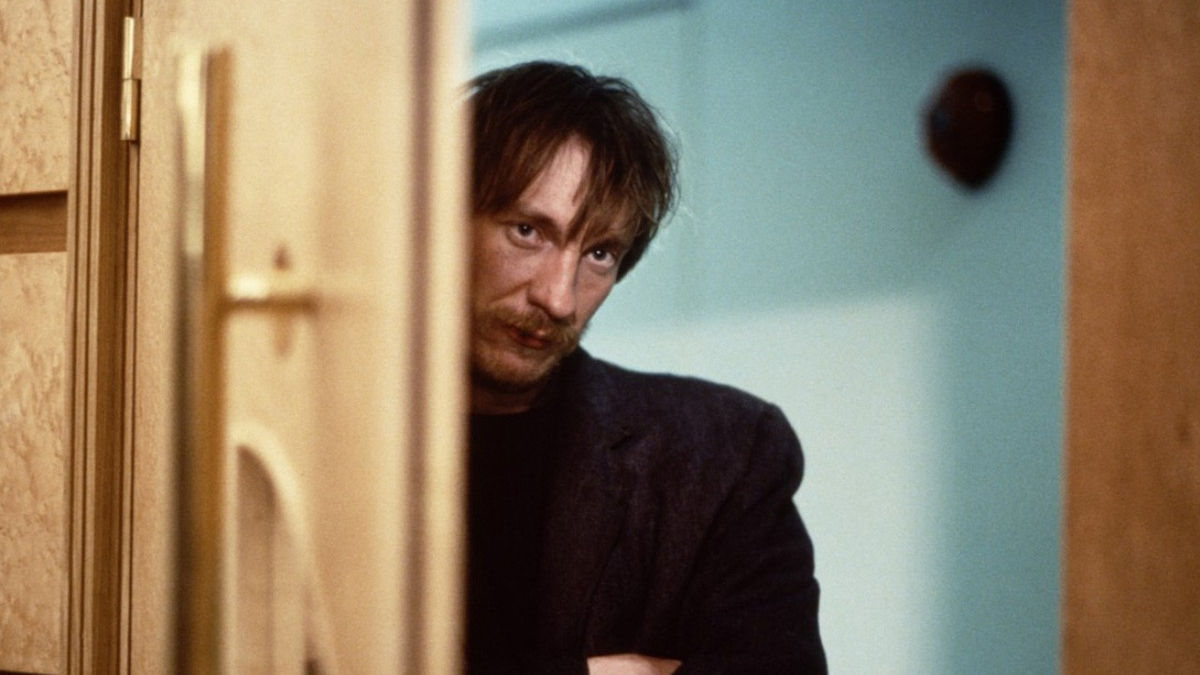
Everybody loves a cinematic cynic, don’t they? Throughout the decades, filmmakers have revelled in to bringing uniquely sardonic characters to life, from the dark, angry film noirs of the 30s and 40s all the way through to today’s gritty thrillers. There are so many career defining characters and performances to explore – whether they’re the hero of their story or the villain, it’s frequently the cold, self-interested personality that not only gets the most attention, but leaves the most impact on viewers. Films have delved into how such pessimistic worldviews can be born, fostered and allowed to grow, and the impact that can have on not just the individual, but the world they inhabit too.
With countless homages, tributes and copycats throughout the years, this list will take a look at the ten most cynical movie characters of all time, old and new.
10. Diana Christensen from Network
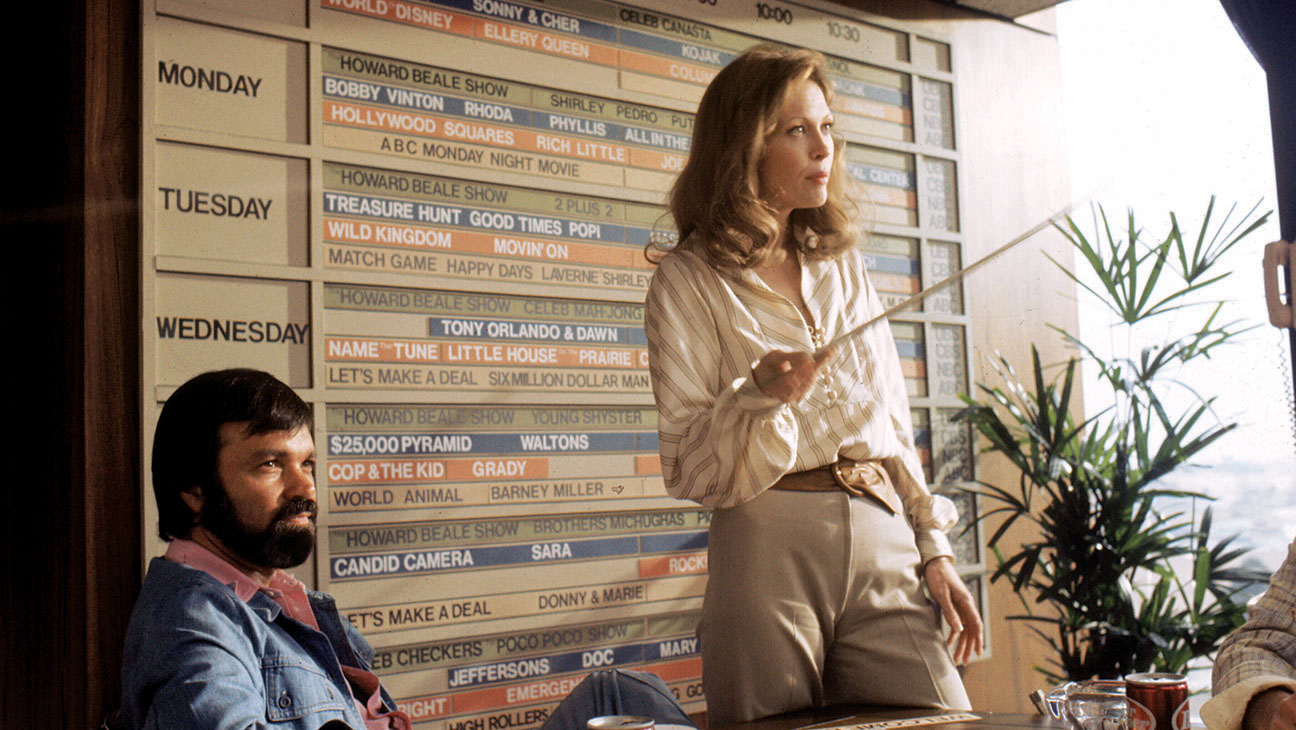
Sidney Lumet’s scathing takedown of television networks and the morbid sensationalism they feed on makes for one of the most blackly entertaining films to come out of New Hollywood. Few films feel as searing in their critique of society, as Lumet shows the grim lengths TV executives will go to in their search for scandal and relevance. In a world where success is fleeting, ratings are all that matter; not integrity, not history, not even common decency. And no character embodies that more than Faye Dunaway’s Diana Christensen. Although far from the only character with a cynical outlook in this grimy world of backstabbing, she is easily the most fascinating.
Dunaway’s dynamic Oscar winning performance allows her network vice-president to seem extremely affable early on, even endearing for brief flashes. But her callous nature and cold-hearted determination are always present, revealing her to have a truly monstrous side. This is a woman who witnesses a respectable man’s mental breakdown and sees it as nothing more than an opportunity for her to further herself. Politics and principles mean nothing in her quest for continued success. She has her finger to the pulse of a society that craves anger and passion, fully embracing it to her own personal detriment. Dunaway brings all that complexity to life, nailing pretty much every scene she’s in. She delivers Paddy Chaefsky’s sharp dialogue with a rapid intensity, always exuding assurance as her moral compass slowly erodes. When it calls for her to face reality and her own inner corruption, Dunaway captures that emptiness and internal discomfort she lives with.
With the direction mainstream news has gone in the decades since its release, Network feels all the more relevant and pressing. Honesty and ethics have been thrown out of the window, replaced instead with vile sensationalism, cheap propaganda and a complete lack of empathy. Thank god the film is so funny, otherwise it’d just feel like a grimly accurate prediction of what was to come.
9. Detective William Somerset from Se7en
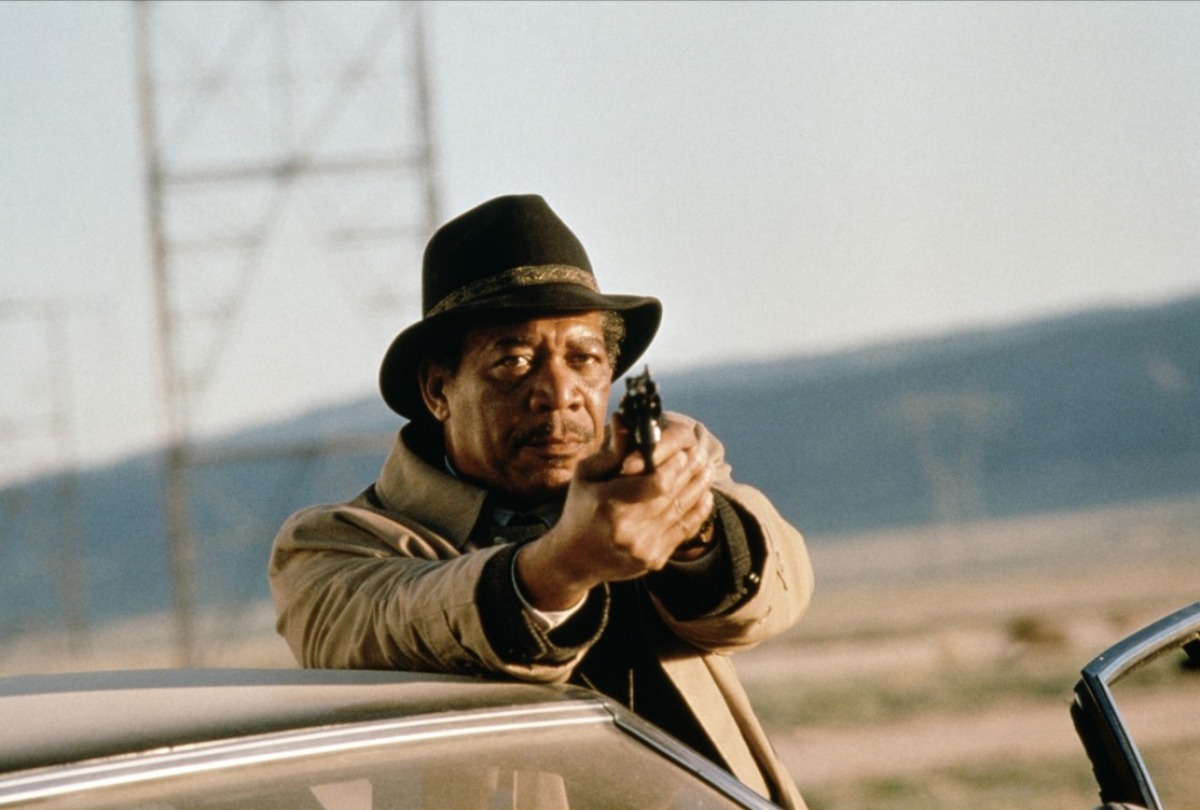
David Fincher’s morbid musings on the world and the sins of humanity is realised with chilling precision. Various forms of cynicism bubble just beneath the surface of his gritty neo-noir, from the worn-down, abject defeatism of Morgan Freeman’s Detective Somerset, to John Doe’s murderous hatred for humanity. It’s Somerset’s outlook that is the most affecting though. When he is contrasted against Brad Pitt’s younger, idealistic Detective Mills, you see the ramifications of a life spent wading through the filth of society. Where there may once have been morals and compassion inside him, they’ve has been replaced with apathy and pessimism. He no longer cares about duty or social responsibility – men like John Doe have slowly and surely chipped away at it, leaving behind a man who has little energy for anything but his own wellbeing.
The nameless city is literally all encompassing, blocking out the sky and trapping everything in its cesspool of ugliness. It’s exactly the kind of environment that allows a psychopath like John Doe to thrive – a self-absorbed, intelligent man with a dangerous God complex, who sees nothing but the worst in everything around him. His gruesome crimes say as much about his own societal values as they do about his bloodthirsty tendencies. The film won’t even show you his shocking, grisly murders. Fincher understands that, when done right, horrors suggested can be twice as effective as horrors shown. It’s disturbing in the best kind of way, leaving you with the gruesome remains of these crimes, forcing the imagination to vividly piece the rest together.
8. Llewyn Davis from Inside Llewyn Davis
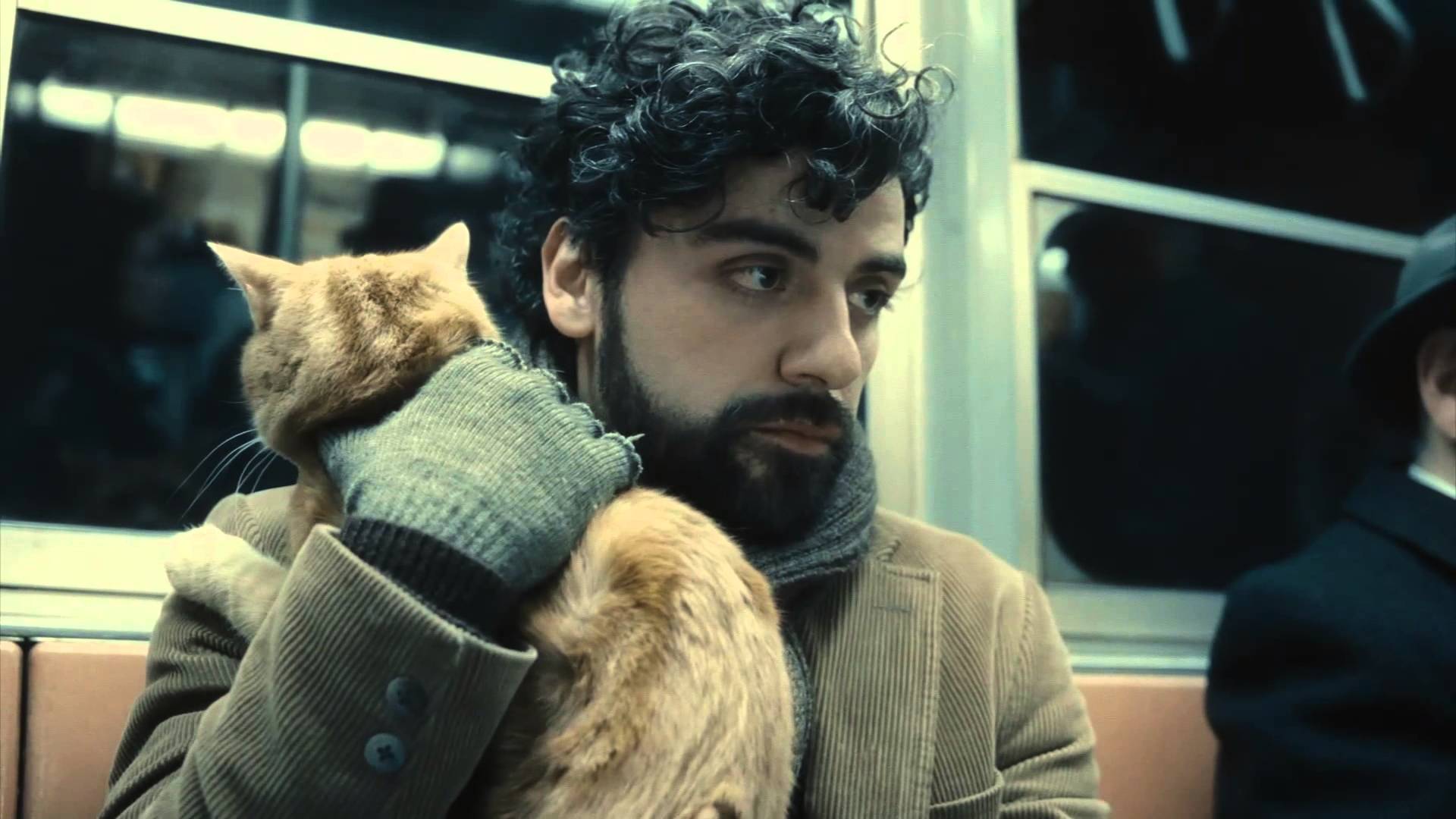
The Coen Brothers are no strangers to showing the darker, more pessimistic aspects of life. With Inside Llewyn Davis, their usual tropes and uniquely Coen idiosyncrasies are tinged with melancholy and pathos. They make you feel the deep hopelessness, internalised misanthropy, and self-inflicted agony of their main character, as he wanders through life with no real connection with the world around him. His world has come crashing down around him in an unimaginably horrible way, and in turn he regresses inwards, trusting no one, unable to see and think in terms beyond his own blinkered existence. Just existing, to him, isn’t enough; a regular life isn’t one he deems worth living. Yet the vague concept he has of personal success is always just out of reach.
Llewyn is eternally frustrating – a couch-hopping folk singer with a bitter take on life. In his attempts to cope with both recent trauma and the general grind of life he only ever seems to end up making things worse for himself. He lets other people do his worrying for him, never accepting the responsibilities that come with reality. And yet for as much as he wallows in an unhealthy amount of self-pity, the Coens make his plight emotionally devastating. You can see the toll the world has taken on Llewyn in Isaac’s weariness, taking every setback and outburst not so much in his stride as in his aimless shuffle.
His talent is undeniable, but unreliable behaviour and a downtrodden demeanour hold him back. He is unable to tap into any kind of shared human experience outside of his own, lonely existence. The drab washed out world he inhabits is so devoid of colour and energy and simple joys, and the toll it takes is to bleed him too of all enthusiasm for life. Ambition and passion have been replaced with desperation and apathy. It’s relentlessly downbeat, with even the more amusing moments only really feeling so when compared to Llewyn’s unending tiresome circle of existence. ‘Hang me, oh hang me’ he sings, and it really sounds like he means it. The cruellest irony is that he only really shines when singing about his own demise.
7. Melvin Udall from As Good As It Gets
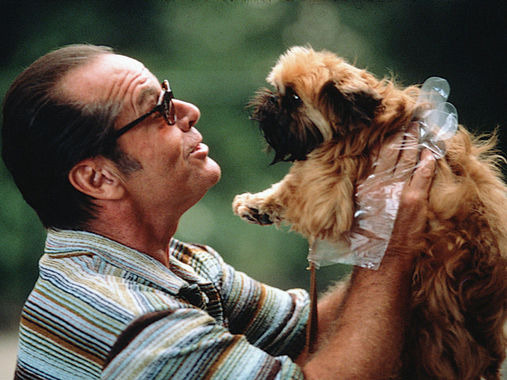
Of course, cynicism doesn’t have to be confined solely to thrillers and dramas. Romantic-comedies are often associated with an easy-going, light-hearted atmosphere, lending themselves well to sentimentalism and cliché. So when you find one with a protagonist as cynical and difficult as Jack Nicholson’s Melvin Udall, it can really make it stand out from the rest.
The role that won him his third Oscar (second for Best Actor), Nicholson’s cranky, OCD pensioner is about as far removed from your typical rom-com leading man as you can imagine. His is a life full of frustration and anger, wedded to compulsive routines but getting no apparent pleasure from anything he encounters. He’s easily irritable and lacking in any tact whatsoever, which puts him in most people’s bad books. His outdated social attitudes, combined with his obsessive behaviour, result in him being rude to just about everyone he encounters, intentionally or not. That he is a writer of romance novels, the sappiest of all book genres, only heightens the irony of his cantankerousness. Instead of finding common ground, he is unable to separate the happy world of fantasy from the only reality he knows.
Despite all that, the film is altogether feel-good, with a wonderful cast of supporting stars who slowly worm their way into Melvin’s affections, breaking down his well-built barriers. His disdain melts away to reveal compassion and connections he hadn’t even realised were being built, in one of the defining cinematic examples of love melting a heart of ice. It’s a testament to Nicholson’s natural charisma that he manages to make a truly contemptible person seem much more charming than he probably deserves to be. Helen Hunt and Greg Kinnear are terrific too, starring as the acquaintances who show Melvin that there’s more to life than his cynical mind would initially admit.
6. Tyler Durden from Fight Club

It’s the variety of cynicism that really makes David Fincher’s seminal 90s cult classic stand out from the rest of this list. As with Fincher’s similarly scornful Se7en, there isn’t one brand of cynicism that defines this macho fantasy. From the Narrator’s self-wallowing misery, to Marla’s morbid outlook on life, to Tyler Durden’s chaotic nihilism, every character is fuelled by some variety of disdain for the modern consumerist world they find themselves in. Durden’s is the clearest though, as he loudly and proudly seeks to tear down the established order of things, building a world of his own twisted design.
He abhors the doldrums of everyday life, born out of the Narrator’s empty, self-loathing existence. Menial office jobs and material possessions do not give him any kind of feeling; instead he concocts a personality that’s anti-everything. Establishment, compassion, civility; you name it, Tyler Durden is probably against it. As he begins releasing his pent up frustration on the wider world, quickly attracting swathes of similarly frustrated men to his shamelessly aggressive cause, we begin to understand the magnetic appeal of a Tyler Durden. He’s the type of person many people secretly wish they could be, thumbing his nose at order and decency as he acts on his own arrogance and contemptuousness. He sees weakness around him that he can mould to his liking, using and discarding people as he sees fit in service of his own delusions of grandeur.
Veteran film critic Alexander Walker unwittingly summed up Durden and Fight Club’s twisted ethos best in his scathing takedown of the film – ‘it is an inadmissible assault on personal decency. And on society itself.’ To Tyler Durden, he is God of his own world, spouting a doctrine that feels more scarily relevant to today’s modern societal discourse than it did back in 1999.